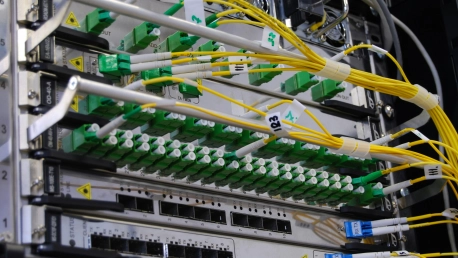In an operation that stretched nearly a decade, from 2014 to 2022, Onur Aksoy, functioning as the CEO of Pro Network Entities, masterminded one of the most significant influxes of counterfeit Cisco networking equipment into America’s technology market. What seemed on the surface to be genuine Cisco products, powering critical networks across the nation ranging from military installations to healthcare and educational institutions, were in fact, low-grade counterfeits. The infiltration not only undermined economic security but also posed a grave threat to national safety by potentially compromising technologies fundamental to the U.S. infrastructure.
The Scope of Aksoy’s Counterfeiting Operation
Pro Network Entities’ counterfeit operation saw the illicit importation of tens of thousands of fabricated Cisco networking components that were disguised as legitimate. These fake products penetrated deeply into the nation’s tech fabric, often underpinning essential services that ensure public safety and support the daily functions of crucial institutions. The success of the scheme leveraged the heavy reliance of modern infrastructure on networked technology, which, when compromised, could lead to catastrophic consequences. Such a comprehensive breach calls into question the vulnerability of supply chains and the protective measures in place to guard against fraud on such a massive scale.The counterfeit devices caused significant disruptions, often triggering network failures and imposing severe maintenance challenges within sectors where downtime can mean life or death. The repercussions were not merely technical but affected the entire spectrum of operation for these organizations, highlighting the need for a more secure and scrutinized supply chain process.
Methods of Deception and Evasion
Aksoy’s operation wielded an arsenal of devious tactics to slip these counterfeits past customs and into the market. The scheme involved setting up multiple shell companies and sophisticated online storefronts, which added layers of obfuscation to shield the operation from legal scrutiny. By adopting fake identities and using intentional mislabeling of shipments, the operation was able to bypass the stringent inspections often expected at U.S. borders.This strategic evasion was key to sustaining the operation’s façade of legitimacy for years. It showcased not only the lengths to which counterfeiters would go to protect their interests but also exposed the weak points in supply chain security that could be exploited for such large-scale deception. The implications of these tactics are vast, underlying the fact that the integrity of technological products can so easily be undermined by elaborate subterfuge.
Legal Reckoning and Implications
In recognizing his criminal conduct, Onur Aksoy pleaded guilty to the charges, including conspiracy to traffic in counterfeit goods and to commit mail and wire fraud, resulting in severe legal repercussions. His sentencing reflected the gravity of the crime—a lengthy prison sentence, a monumental restitution payment to Cisco and affected parties, a substantial fine, and an extended period of supervised release.This conviction marked a significant triumph in the U.S. judicial system’s ongoing battle against technological counterfeiting. It sent an unequivocal message that such criminal endeavors will face stern repercussions and that the agencies involved are deeply committed to protecting the nation’s technological ecosystem.
The Role of U.S. Agencies in Uncovering the Fraud
Unveiling Onur Aksoy’s counterfeit operation was a testament to the meticulous collaboration between various U.S. agencies, including Homeland Security Investigations and the Defense Criminal Investigative Service. The collective effort illustrated the rigor and determination that the U.S. devotes to dismantling such deceptive networks. These successes not only represent a win against this specific operation but also demonstrate the potential effectiveness of interagency cooperation in stamping out similarly complex schemes in the future.The apprehension and prosecution of Aksoy and his counterfeit network underscore the lengths American authorities are prepared to go to safeguard the nation against fraudulent activities that threaten the security and reliability of its technological infrastructure.
The Aftermath of Infiltration: Industry and National Security Threats
Aksoy’s counterfeit ring has not only cast light on the vulnerabilities within industries but has also raised alarms concerning national security. The counterfeits’ penetration into sensitive areas—such as military applications—poses harrowing considerations for U.S. strategic planning. This incident has necessitated a more stringent vetting and procurement process, accelerating the adoption of advanced verification systems to mitigate future risks associated with counterfeit technology.In the wake of this scandal, the narrative extends far beyond financial disruption—it signifies a potential compromise in the security apparatus of the country. It heralds the need for vigilance in detecting and deterring the spread of counterfeit components.
Moving Forward: Strengthening the Supply Chain
For nearly a decade, between 2014 and 2022, Onur Aksoy, at the helm of Pro Network Entities, executed a vast scheme to flood the U.S. tech market with counterfeit Cisco networking hardware. These fake devices, deceitfully passed off as authentic, ended up in pivotal sectors including military, healthcare, and education systems. These knock-offs were not simply items of economic fraud but posed a severe risk to national security.Operationally indistinguishable from their genuine counterparts on the surface, these counterfeits jeopardized the integrity of essential American infrastructure. The masquerade of authenticity extended to the equipment powering crucial networks, thereby quietly eroding trust in the supply chain and potentially opening up nodes of vulnerability that adversaries could exploit. With real Cisco products known for their reliability and security features, the use of these fraudulent pieces disrupted the expected standards, potentially leading to failures or breaches in sensitive environments.Aksoy’s long-term infiltration of the market with this sham equipment shows the growing complexity of tech-related criminal enterprises and underscores the need for rigorous supply chain checks. By endangering economic and national security, it also highlights the critical nature of protecting technological infrastructure against such insidious threats.









